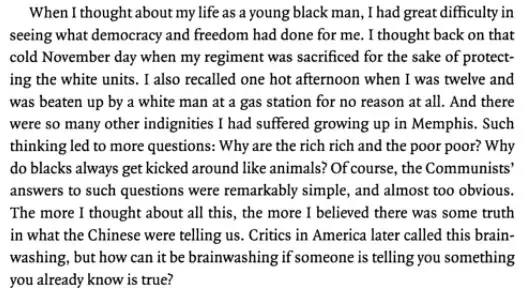The Wikipedia article on brainwashing states:
Hunter and those who picked up the Chinese term used it to explain why, during the Korean War (1950-1953), some American prisoners of war cooperated with their Chinese captors, even in a few cases defecting to the enemy side.[10] British radio operator Robert W. Ford[11][12] and British army Colonel James Carne also claimed that the Chinese subjected them to brainwashing techniques during their war-era imprisonment.[13] [ . . . . . ]
In 1956, after reexamining the concept of brainwashing following the Korean War, the U.S. Army published a report entitled Communist Interrogation, Indoctrination, and Exploitation of Prisoners of War which called brainwashing a "popular misconception".[16] The report states "exhaustive research of several government agencies failed to reveal even one conclusively documented case of 'brainwashing' of an American prisoner of war in Korea."[17]
The English language article refers to Korean War cases, but there is also a famous case from World War II: the Japanese soldiers who formed the Association of Returnees from China have testified extensively about war crimes that they committed, but Japanese right-wingers reject all their testimony, claiming that Chinese "brainwashing" has rewritten their memories.
The current scientific consensus is that there is no such thing as "brainwashing", but science, of course, is subject to change based on evidence, and this would be a major case study.
My specific question is: did the Chinese during 1940-1955 employ a special technique that caused soldiers to view their own countries as evil and defect to the Chinese side?
